Last year, for the first time, e-books outsold hardback editions on Amazon.com. We are past the Rubicon. It’s a new frontier for digitized distribution, a post-publishing paroxysm. A new world that threatens to put us Beyond the Gutenberg Galaxy, which has been our galaxy, more or less, since 1436.
Fifty-six years after Gutenberg’s printing press was invented, Columbus sailed the ocean blue and found “America” in 1492. A trawl through Amazon might give you the impression that this enduring geopolitical idea has also come to an end. There is no shortage of journalistic, pundit-astic slogans and acronyms — Post-America, the End of the West, BRICS, PIGS — to describe one or another tectonic shift from West to East, from North to South, from democratic capitalist to state capitalist, from governmental to individual. It’s foreign policy for a post-political age.
One of the best — and most telling — recent titles is Parag Khanna’s How to Run the World (2011), a motivational text for… you? There is something for everyone, whoever you are. The difference between personal self-help (“How to Love Yourself Every Day”), corporate self-help (“How to Be Steve Jobs Your Way”), and nation-state self-help is not a question of ontology, just scale.
Khanna, who describes himself as a “geo-strategist, author, and world traveler,” may be the preeminent post-political pundit of the age. He is young, media adept, TED-favored, and slogan-ready — he even had his own MTV show, Innervisions.
Since Amazon is to books what Wikipedia is to education, I wanted to see what kind of “Soft Power World” is algorithmically generated by this hardback genre within the confines of the most globalized bookstore ever. What is the last bastion of control and superiority the “West” tries to hold on to over the “Rest”? I’d softly argue it is the right to morally and intellectually narrate the fallout from its entitled — and male — point of view. It may well be the last export industry the West has left.
Using the Amazon recommendation feature “Customers Who Bought This Item Also Bought,” we’ll explore rhizomatic links of affiliation, contouring sideways through the field. In each example, I’ll pull out the essential Amazon description, comment on the packaging (front-cover symbology, back-cover blurbs), and run excerpts from a conversation with Parag Khanna on the topic at hand. “There is a combination of an algorithm and horoscope at play in the suggestion of recommended titles! It’s psychoanalysis, cosmology, and amateur pedagogy rolled into one,” he says. “Since so many people write the same thing at the same time, it’s strange why Amazon would recommend you essentially buy another version of the same book you just bought!” It is with his book that we rev up the search engine.
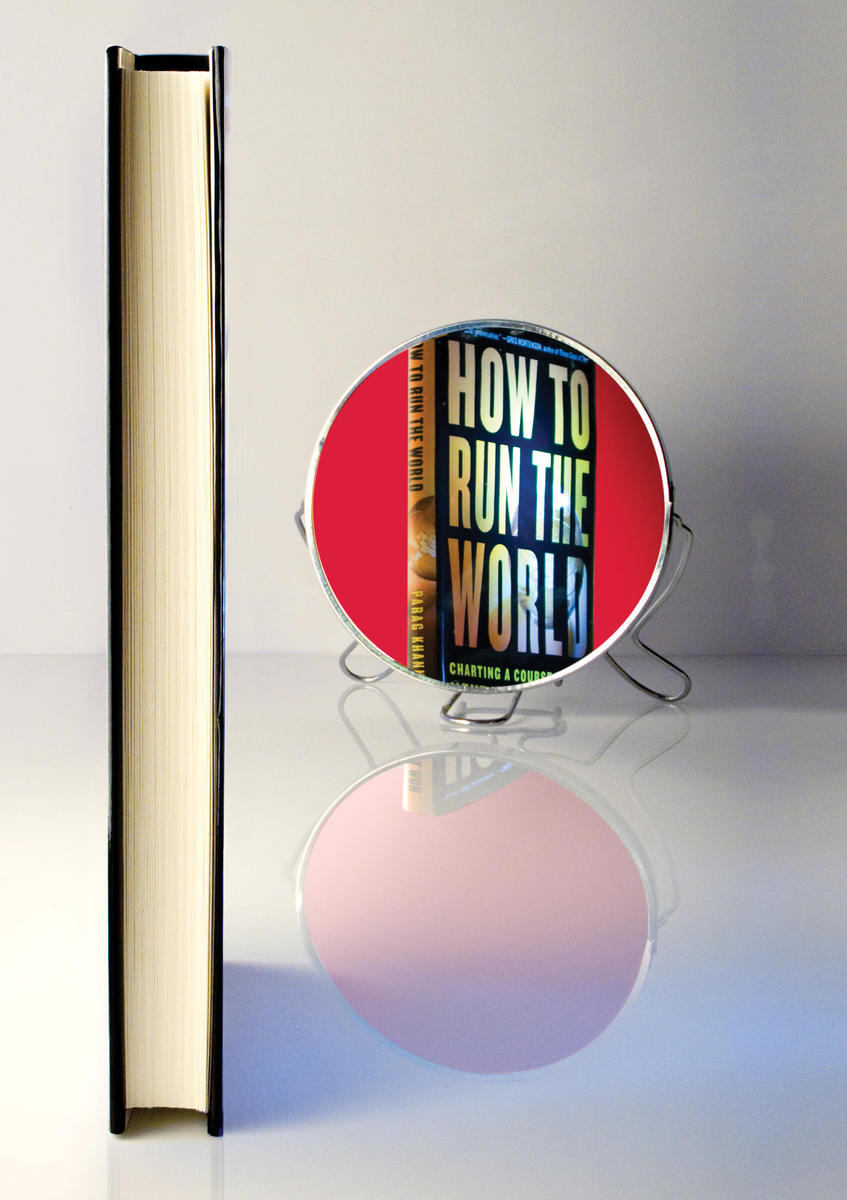
HOW TO RUN THE WORLD
PARAG KHANNA
Book Description
Here is a stunning and provocative guide to the future of international relations — a system for managing global problems beyond the stalemates of business versus government, East versus West, rich versus poor, democracy versus authoritarianism, free markets versus state capitalism. Written by the most esteemed and innovative adventurer-scholar of his generation, Parag Khanna’s How to Run the World posits a chaotic modern era that resembles the Middle Ages, with Asian empires, Western militaries, Middle Eastern sheikhdoms, magnetic city-states, wealthy multinational corporations, elite clans, religious zealots, tribal hordes, and potent media seething in an ever more unpredictable and dangerous storm. But just as that initial “dark age” ended with the Renaissance, Khanna believes that our time can become a great and enlightened age as well — only, though, if we harness our technology and connectedness to forge new networks among governments, businesses, and civic interest groups to tackle the crises of today and avert those of tomorrow.
Shumon Basar
The first of many globes we are about to encounter. A see-through one. Because, the world is not flat, it’s transparent? And yet it still casts a shadow. The title is also transparent. Like Hannes Meyer’s design for the League of Nations headquarters in 1926/27. And Norman Foster’s glass dome set on top of the reconstructed Reichstag building in Berlin. Power should be democratic and democracy should be transparent. Modernism also favored sans serif fonts for its ideological, ahistorical transparency. However, the Renaissance did not. Then again, they didn’t really have the choice.
Parag Khanna
“Governance studies” has grown astonishingly fast given how banal it is for the most part. Much of it does actually attempt to bridge the market jargon of corporate citizenship with the social messaging of bottom-up change, etc. Perhaps I’ve also fallen into the same trap to some extent.
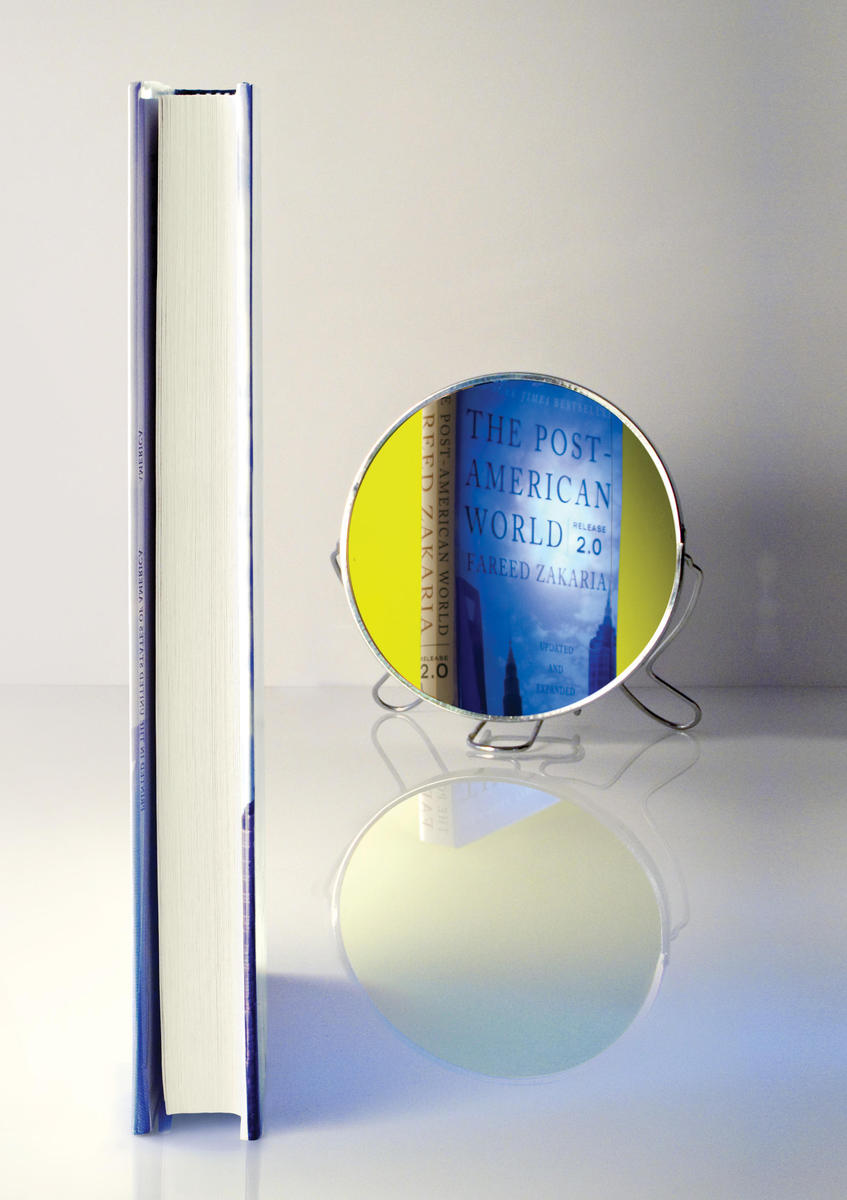
Customers who bought this item also bought
THE POST-AMERICAN WORLD
FAREED ZAKARIA
Book Description Fareed Zakaria’s international bestseller The Post-American World pointed to the “rise of the rest” — the growth of countries like China, India, Brazil, and others — as the great story of our time, the story that will undoubtedly shape the future of global power. Since its publication, the trends he identified have proceeded faster than anyone could have anticipated. The 2008 financial crisis turned the world upside down, stalling the United States and other advanced economies. Meanwhile emerging markets have surged ahead, coupling their economic growth with pride, nationalism, and a determination to shape their own future.
Shumon Basar
Zakaria’s title is no mere title: it’s a self-contained manifesto, seen here floating above innocent blue skies. Skyscrapers are a typical shorthand for economic prowess. That’s the Empire State Building at the bottom, red-faced with shame, dwarfed by iconic towers from Shanghai, Kuala Lumpur, and Taipei. But they’re tipsy. Teetering. Drunk on power? Because that’s what power does to you. Makes you feel big. Then history happens and whomp, it’s game over.
Parag Khanna
Media is just part of the reason that globalization has rendered the traditional category of “international affairs” increasingly meaningless. Amazon still uses that category, but there are of course subdivisions like “diplomacy,” “military studies,” “regional studies,” etc.
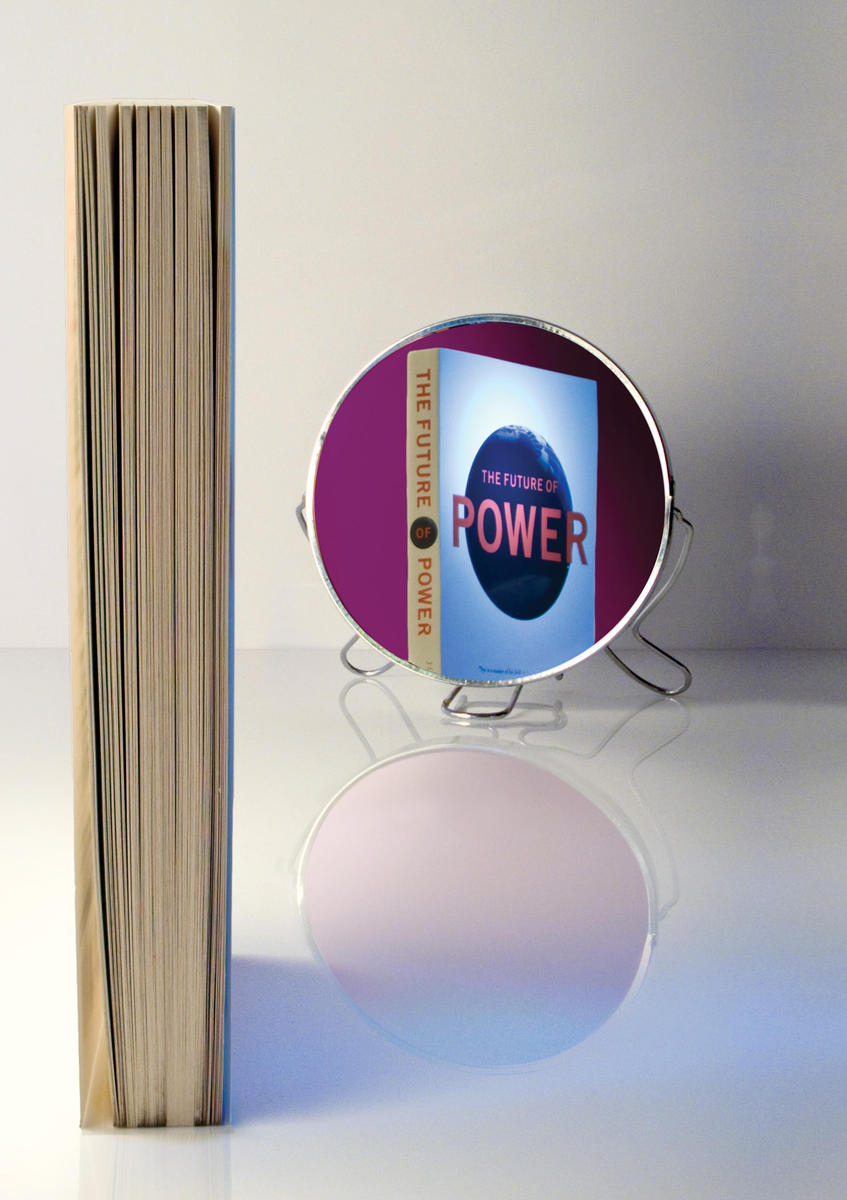
Customers who bought this item also bought
THE FUTURE OF POWER
JOSEPH S NYE, JR
Book Description
Power evolves. At the beginning of the twenty-first century, unsurpassed in military strength and ownership of world resources, the United States was indisputably the most powerful nation in the world. But the global information age is rendering these traditional markers of power obsolete. To remain at the pinnacle of world power, the United States must adopt a strategy that considers the impact of the internet on global power resources. The Future of Power examines what it means to be powerful in the twenty-first century and illuminates the road ahead.
Shumon Basar
“POWER” is on Code Red. In some kind of Armageddon-esque nocturne, the globe is shrouded in black. Is something hurtling toward it, blocking the sun? (Where’s the world’s best deep-core driller when you need him?) Has an Iranian-authored virus knocked out the world’s electricity grids? It’s a new… Dark Ages. All this against an evacuated tabula rasa white. In the digital age, a blank screen is black, as opposed to the blanched white page of pure potentiality. Either the book’s designer read too much Mallarmé or she didn’t have time to finish. Or she got scared by the book’s message and is hiding in Plato’s cave.
Parag Khanna
Globalization could and should easily encompass “international affairs” with few exceptions, but then it would be too broad and authors would be lumped together, losing their niche and their all-important “turf.”
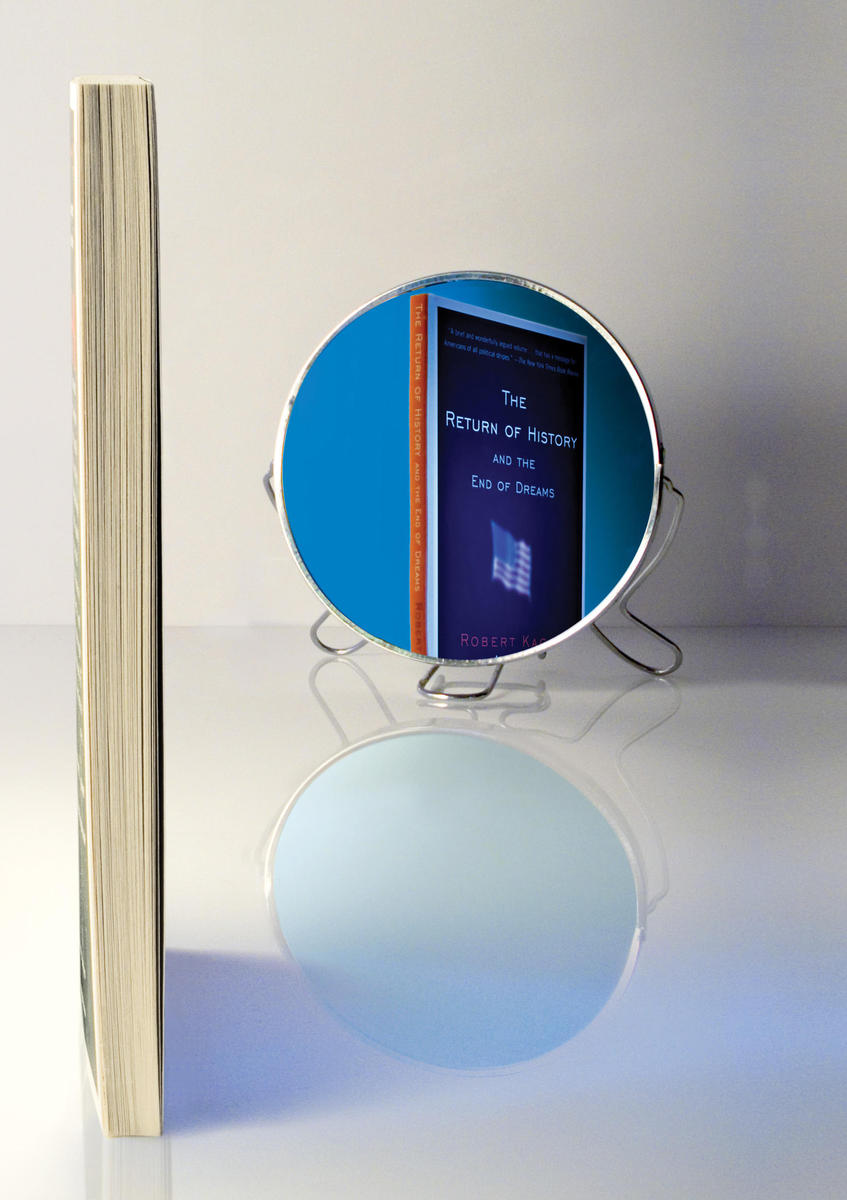
Customers who bought this item also bought
THE RETURN OF HISTORY AND THE END OF DREAMS
ROBERT KAGAN
Book Description
Hopes for a new peaceful international order after the end of the Cold War have been dashed by sobering realities: Great powers are once again competing for honor and influence. The world remains “unipolar,” but international competition among the United States, Russia, China, Europe, Japan, India, and Iran raise new threats of regional conflict, and a new contest between western liberalism and the great eastern autocracies of Russia and China has re-injected ideology into geopolitics… Now, in The Return of History and the End of Dreams, Robert Kagan masterfully poses the most important questions facing the liberal democratic countries, challenging them to choose whether they want to shape history or let others shape it for them.
Shumon Basar
For those of us who forgot, history ended back in 1992 when Francis Fukuyama said it did. But now it’s back? I can’t keep track either. Has it come back from the dead to tell us what being dead is like? Has it returned to remind the world to cherish life as if it were the last day on earth? Or to eat our brains? Anyway, why is the American flag blurred out? Is a Japanese person having sex with it? Or is it like an afterimage, the last thing America will see when the lights switch off and there’s just that blank blackness (again)?
Parag Khanna
To become popular, one has to have a grand reinterpretation. The problem is that those who have tried to do this have been historians like Niall Ferguson and Ian Morris who aren’t necessarily the most imaginative about the future and don’t know much about technology.
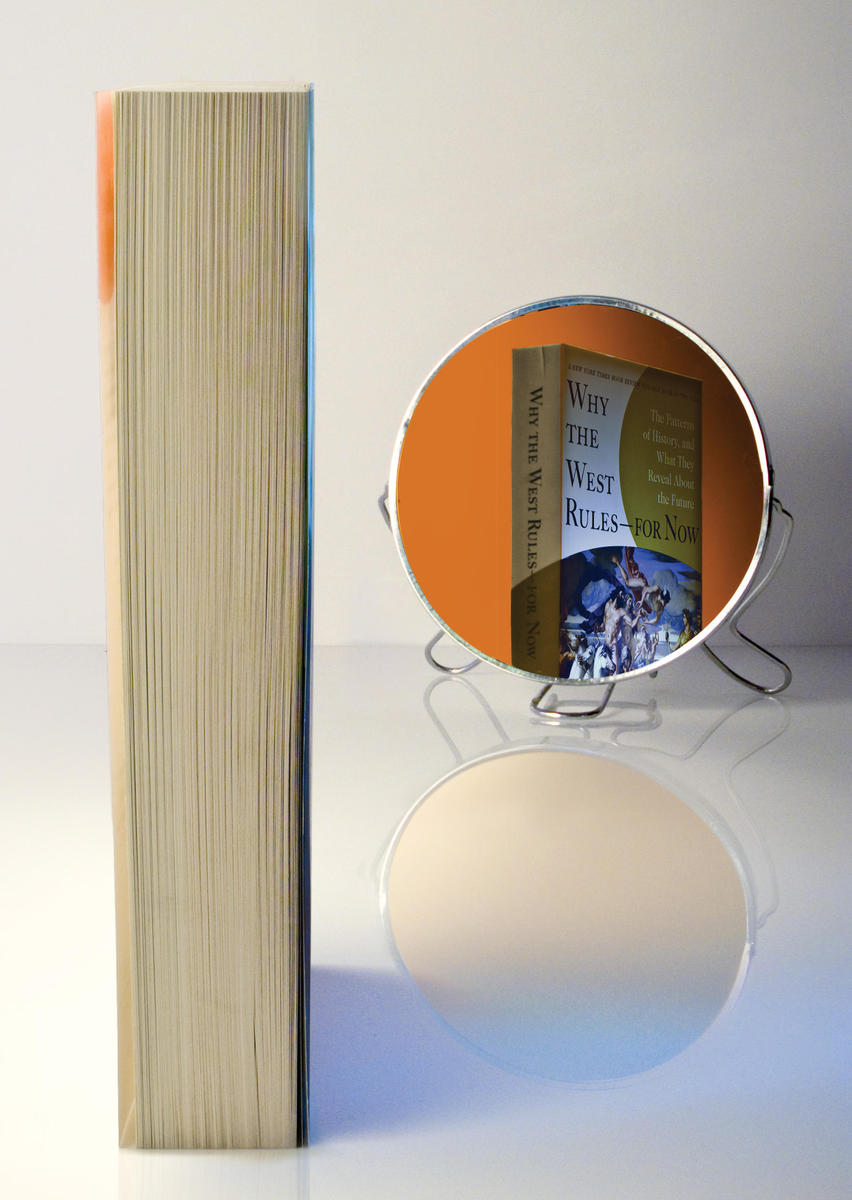
Customers who bought this item also bought
WHY THE WEST RULES — FOR NOW
IAN MORRIS
Book Description
Sometime around 1750, English entrepreneurs unleashed the astounding energies of steam and coal, and the world was forever changed. The emergence of factories, railroads, and gunboats propelled the West’s rise to power in the nineteenth century, and the development of computers and nuclear weapons in the twentieth century secured its global supremacy. Now, at the beginning of the twenty-first century, many worry that the emerging economic power of China and India spells the end of the West as a superpower. In order to understand this possibility, we need to look back in time. Why has the West dominated the globe for the past two hundred years, and will its power last?
Shumon Basar
Sometimes it’s useful to step back, take a deep breath, and go back in time a few hundred years. Things were a lot clearer then. The West ruled! Like, the Enlightenment? Check. The Industrial Revolution? Oh man, that was awesome. Nostalgia was once described as “hypochondria of the heart.” But maybe, just maybe, that heartache is angina.
Parag Khanna
Here’s one thing everyone should ask themselves given the writing on the (Facebook) wall: Why do a PhD anymore?!